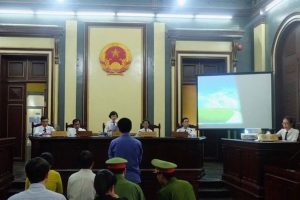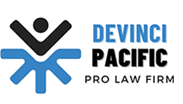Giám đốc Công ty Luật TNHH Devinci Pacific, ông Nguyễn Đức Hiếu đã bình luận về vấn đề Viện kiểm sát được truy tố 1/2 khung hình phạt, được đăng trên Báo điện tử pháp luật TPHCM. Ông là chuyên gia uy tín lâu năm với trình độ cao trong lĩnh vực pháp lý. Sau đây, chúng tôi xin trích dẫn lại toàn bộ bài báo.
Source: Song Mai, Châu Yến. Báo điện tử Pháp Luật thành phố Hồ Chí Minh (số đăng ngày 06/6/2023). Đề xuất VKS được truy tố 1/2 khung hình phạt: Có nên không?
———————————————————————-
Many experts believe that a new proposal on the procuracy's authority to prosecute juveniles to be included in the draft Law on Juvenile Justice is unnecessary.
Ngày 10/4/2023, Tòa án nhân dân Tối cao đã đề nghị xây dựng dự án Luật Tư pháp người chưa thành niên với sáu nhóm chính sách cụ thể. Trong đó, đáng chú ý là việc dự luật sẽ cho phép VKS được quyền truy tố người chưa thành niên theo mức hình phạt chỉ bằng 1/2 mức hình phạt trong khung hình phạt tương ứng.
To clarify this proposal, we would like to introduce some analysis opinions of experts.

Family and Juvenile Court Ho Chi Minh City People's Court hears a juvenile defendant.
MSc VU VAN TAI (Deputy Dean of Criminal Procuracy School of Ho Chi Minh City Procuracy Training and Retraining):

Must amend the Penal Code or it will be against the law
The Penal Code is the foundational legal document for criminal prosecution. All criminal policies must reflect the fundamentals and must not conflict with the Penal Code.
According to legal principles, the Procuracy can only prosecute within the penalty frame satisfying the criminal act; Any frame offense prosecutes that frame, not 1/2 frame. For minors, the policy of punishment for minors must be applied. The court shall decide to judge the right frame of the prosecution's penalty frame, or it can judge a lighter or heavier frame, but must seriously consider the penalty frame of the prosecution. And when setting a specific penalty, the court not only considers the penalty frame for prosecution or the penalty frame that the court gives to trial, but must be based on the regulations on deciding penalties for juveniles and juveniles. related regulations.
The proposal to allow the Procuracy to prosecute minors with a penalty equal to only half of the penalty level in the corresponding penalty frame entails many provisions in the Penal Code to be revised. For people from full 14 to under 16 years old, only a number of laws are changed; and people from full 16 to under 18 years old must be completely corrected, because over 16 years old must bear penal liability for all kinds of crimes. I think this is unnecessary when there are provisions in Article 101 of the Penal Code as the basis for all cases of juveniles committing crimes.
If the Penal Code is not amended but stipulated in the draft Law on Juvenile Justice, it will be contrary to the Penal Code.
Reviewing and amending regulations and policies on humanity and leniency towards minors is necessary and a common trend, only prosecuting criminal liability when other measures cannot be applied. If necessary, we can amend the criminal policy towards juveniles in Chapter 12 of the Penal Code, specifically adjusting Article 101 (on term imprisonment).
For the project of the Law on Juvenile Justice (if any), it is only necessary to prescribe a more lenient policy, thereby serving as a basis for us to amend Article 91 of the Penal Code (in principle for handling persons under 18 years of age). guilty). Otherwise, it is easy to cause conflicts in the provisions of the Criminal Code and the Law on Juvenile Justice (if any) on the prosecution's competence of the Procuracy and the adjudication competence of the court.
MSc. NGUYEN DUC Hieu (Ho Chi Minh City University of Law):

Need to consider
The current trend of the world upholds the rights of children, so there are views that need to reduce responsibility, especially criminal liability for children.
It is proposed to allow the Procuracy to prosecute minors with a penalty equal to only half of the penalty in the corresponding penalty frame, if compared with the provisions of Article 101 of the 2015 Penal Code (on imprisonment with a fixed term). ) means reducing the penalty of people from full 16 to under 18 years old.
It can be seen that the reduction of the sentence will support the process of reintegration into the community, reduce the psychological impact on juveniles... However, it must be recognized at this time, with the process of preventing against crime, if only half of the penalty is imposed on people from full 16 to under 18 years old, it will affect the fight against crime; especially crimes with many accomplices; crimes of infringing upon the lives and health of others... Therefore, it should be considered.
In addition, if the regulations allow the Procuracy to prosecute half of the penalty frame, it is necessary to clarify the role of the Procuracy in prosecuting; propose a plan for the sanction below the lowest level of the penalty frame.
Dr. PHAN ANH TUAN (Ho Chi Minh City University of Law):
 No need to put in the law
No need to put in the law
Regarding the term imprisonment for minors, both the 1999 Penal Code (Article 74) and the 2015 Penal Code (Article 101) stipulate "the highest penalty level to be applied". Specifically, for persons aged between full 16 and under 18 years old, if the applicable law prescribes a fixed-term imprisonment penalty, the highest penalty applied shall not exceed three-quarters of the prison term prescribed by the law. .
As for persons aged between full 14 and under 16 years old, if the applicable law stipulates that the penalty is termed imprisonment, the highest penalty applied shall not exceed half of the prison term prescribed by the law.
Previously, when guiding regulations on punishment for minors, Resolution 01/2006 of the Judicial Council of the Supreme People's Court provided specific guidance.
The spirit of this resolution is to be understood that when deciding the penalty for juvenile offenders is the penalty level for juvenile offenders determined to the extent of a reduction of 1/2 or 3/4. of the penalty bracket (lowest and highest) of the law (corresponding to the applicable adult).
Therefore, it is unnecessary to stipulate that the Law on Juvenile Justice allows the Procuracy to prosecute minors with a penalty equal to only half of the penalty in the corresponding penalty frame.
Because it is enough to just issue a document guiding the application of the law or amend the corresponding provisions of the Penal Code to reflect its contents properly. This will be much more reasonable than the provisions in the Law on Juvenile Justice.
Lawyers LE Trung Phat (Ho Chi Minh City Bar Association):
Difficult to meet all three conditions
According to the proposal of the Supreme People's Court, the Procuracy has the right to prosecute minors with a penalty equal to 1/2 of the penalty in the penalty frame, which must satisfy three conditions. In which, one condition belongs to the group of nature and extent of the act and crime, one condition belongs to the will of the victim and one condition is the sincere attitude of declaring and admitting guilt.
The promulgation of the above regulation is appropriate and is only a mechanism to help the Procuracy exercise its right to prosecute. And if the above 1/2 mechanism is applied, the Procuracy must make it clearer in the indictment to serve as a basis for the application.
However, to enjoy this mechanism, it is not easy with the above conditions. Because in order to get "the consent and agreement of the victim" it is necessary to have the will to reduce the victim's punishment, to agree on the issue of compensation; If the compensation is not enough, it will be difficult for the accused and the victim to reach an agreement. At that time, the 1/2 mechanism will also not be applied.
In addition, the factor "the defendant confesses to the crime before issuing the indictment" is also a rather sensitive factor. Because juvenile offenders have cognitive and psychological instability, the perception and confession of offenses are quite vague or inconsistent. Therefore, now the circumstances of sincere declaration and repentance are applied until the trial. Because by the time the court hears, there is a lawyer to advise, the jury analyzes and evaluates, the defendant will then understand and admit his behavior. If this factor is forced to be brought up right from the time of completion of the indictment, it may not be objective.


Post a Comments